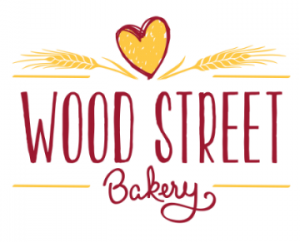About Us
Our bakery is a reflection of who we are. From her childhood, Therese helped her mother prepare food for her nine brothers on the farm. Later, she served as head cook for a summer camp. Therese has always been experimenting in the kitchen and aims to please her guests. Jim, on the other hand, is an engineer at heart. The engineer thinks often about efficiency (resources and labor), loves to investigate new methods, and is concerned with a sanitary process.
Both Therese and Jim spent several years in Germany, experiencing the home and commercial side of European baked goods, appreciating both the art and science of baking. Together, we are motivated to use our God-given gifts to improve the welfare of those around us.


We exist to improve the health of the community in which we live. We want to help families establish good eating habits when it comes to baked goods, and help people (like ourselves) enjoy baked products without worrying about the effects on our weight and circulatory system. In a nutshell, it’s about using simple, real, and recognizable ingredients in their natural state. We strive to reduce the proportions of fat and sugar used in many of today’s baked products, yet without compromising the taste and pleasure of eating fresh baked goods.
Life isn’t just about eating or working, however. We desire to befriend and encourage those we come into contact with. As Christians, we’re called to serve those around us, and conduct business with integrity, honesty, and diligence. When financially feasible, we desire to give back to the community by contributing to fundraisers and local food pantries. We feel called to help people in less prosperous parts of the world, by contributing to projects aimed at meeting such fundamental needs as clean water, sanitation, food, shelter, and medical care.
We care about the condition of the earth because we believe we’re stewards thereof. Perhaps because America has affordable resources, we’re not very good at conserving them. At Wood Street, we have a few steps we’ve taken in hopes of making our footprint a bit smaller:
🌱 Less packaging, including the use of reusable cloth bags for packing customer orders
🌱 Sustainably-produced ingredients, using local, non-GMO sources whenever feasible
🌱 Less wasteful sources of energy, including an underfloor heating system and gas
The bakery market has made significant shifts in the past decades. A shift from “Ma & Pa bakeries” to large industry players with wide distribution channels has resulted in a less flexible, more centralized source of what we eat. Preservatives have become commonplace to bridge the time lag between production and sale. More and more small town bakeries are going by the wayside, as consumers opt for the convenience and price of trucked-in goods. The local baker can seldom compete from a cost perspective, prompting many small-town bakeries to go out of business.
The artisan bakers have come to the forefront, bringing “old world” and “handmade” techniques to light. We not only respect and appreciate the artisans in our midst, especially for their contribution to reviving the art of baking but also benefit from their advice and knowledge. We aim to emulate the artisan in many of our products, but we also realize not all people can afford “100% artisan” products. By their very nature, artisan products need to be priced high to cover the artisan’s labor and profit – or the business is not sustainable. This prompts us to ask: “Is it feasible to reach a broader segment of people who may not be able to access or afford locally-baked items?”
We believe a compromise is possible, using healthy grains and home-spun recipes. To keep the costs down, we apply some technology and creativity, along with efficient ordering and distribution channels. In short, we reduce the labor to enable the production of affordable, yet healthy products. A healthy product, in our opinion, is primarily a function of ingredients – we desire to use the best quality and preferably locally-produced items.

